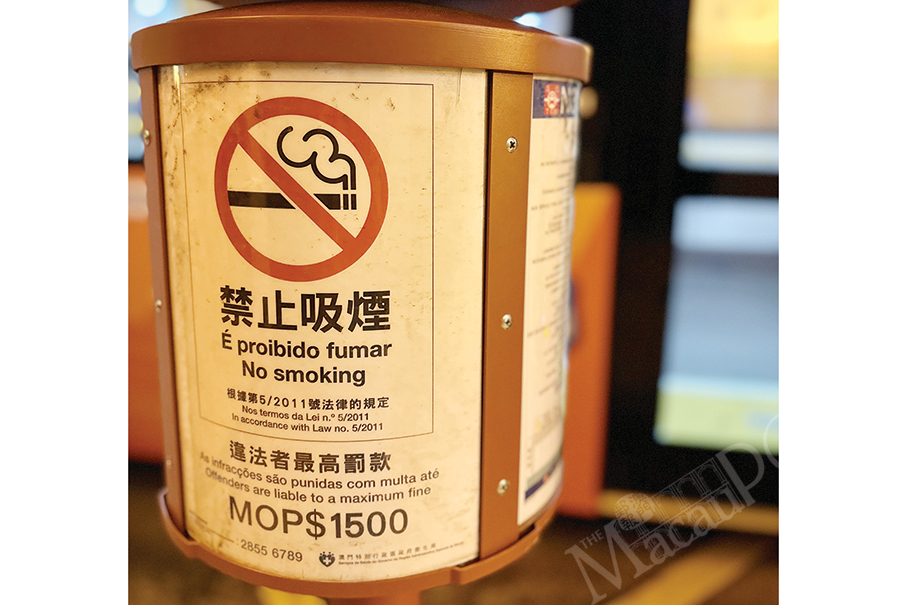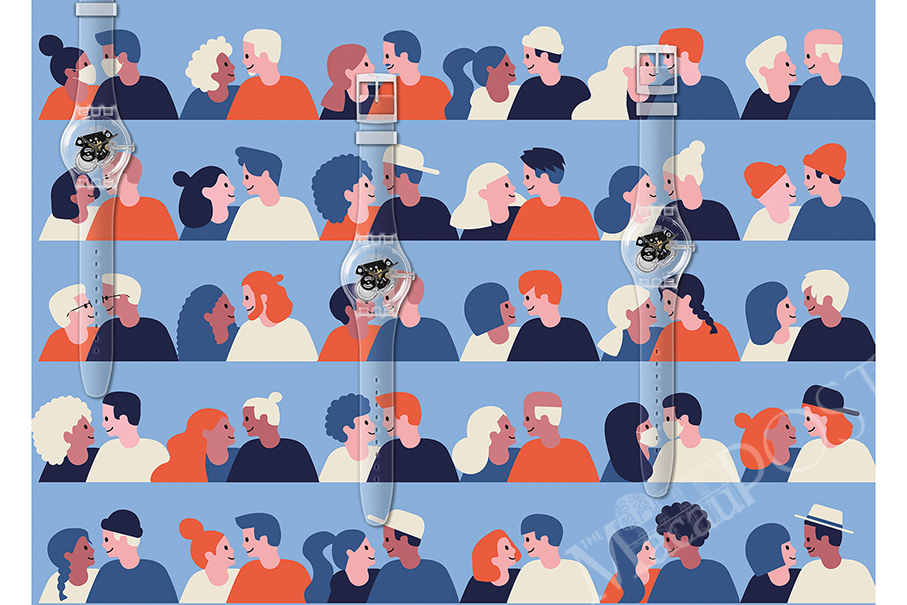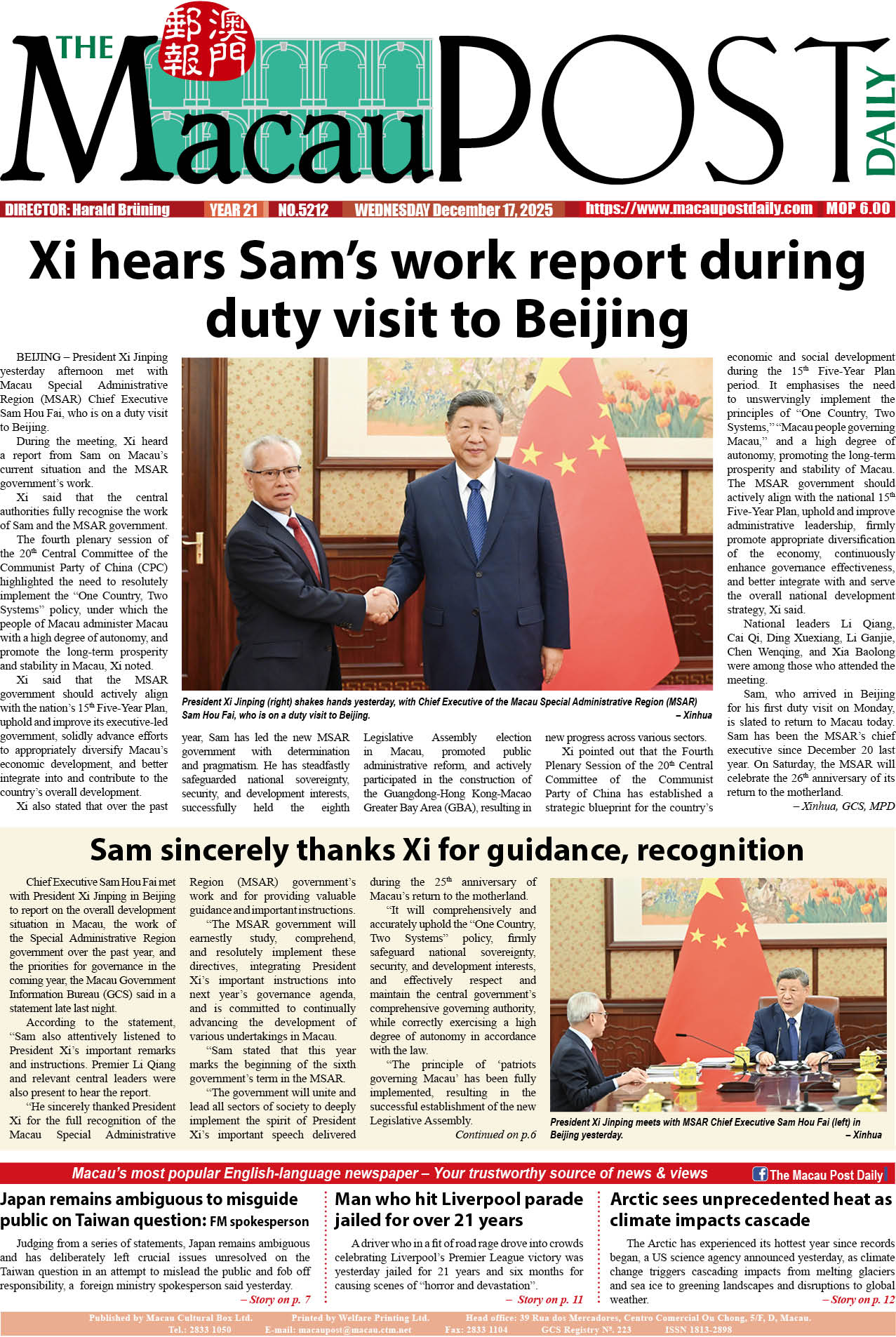The Health Bureau (SSM) said in a statement yesterday that it will continue to study the feasibility of banning people from smoking while walking and designating parts of streets as no-smoking areas, with the aim of further improving Macau’s tobacco control.
In reply to a written interpellation raised by lawmaker Leong Sun Iok in mid-March, SSM Director Alvis Lo Iek Long said that since the Tobacco Prevention and Control Law came into force in 2012, smoking has been completely banned in indoor public places and some outdoor areas, adding that the bureau has considered relevant solutions to address “smoking while walking” behaviour, but given the complexity of the streets in Macau and the jurisdiction of different management bodies involved, an agreement would have to be reached first among all parties before the proposal could get off the ground.
In his written interpellation, Leong urged the government to continue to adopt the principle of “gradual and orderly progress, resolving the simple issues before the difficult ones” concerning tobacco control, review the effectiveness of the current regulation of e-cigarettes in a timely manner, and study the feasibility of expanding the scope of the existing smoking ban, so as to build a “smoke-free Macau”.
Leong is a vice-president of the Macau Federation of Trade Unions, customarily known as Gung Luen, its name in Cantonese.
Dr Lo said that with the aim of protecting the population’s health, especially young people, Macau started in 2022 prohibiting the manufacture, distribution, sale, import and export of e-cigarettes and other tobacco products intended to be consumed by the user orally or for sniffing, noting that according to the “2021 Macao Youth Tobacco Use Survey”, the use of conventional tobacco among local students aged 13-15 stood at 3.8 percent, a decrease of 2.3 percentage points from 6.1 percent in 2015, while the use of e-cigarettes stood at 4.0 percent, an increase of 1.4 percentage points from 2.6 percent in 2015, indicating that the use of e-cigarettes by young people has increased. The next survey will only be carried out in 2026, Dr Lo pointed out.
In terms of illegal smoking, according to the SSM statement, the Health Bureau, Public Security Police (PSP), Municipal Affairs Bureau (IAM), Gaming Inspection and Coordination Bureau (DICJ) and the Macau Customs Service (SA) processed in the first three months of this year a total of 1,115 non-compliance cases, including 1,066 cases of illegal smoking, 37 cases of carrying e-cigarettes into and out of Macau, eight cases of selling tobacco products that did not comply with the official labelling requirements, and three cases of selling tobacco products by directly displaying them on shop shelves.
In Macau, smoking is barred in all indoor public venues and facilities, except smoking lounges in casinos and at the airport. In addition, smoking is also prohibited within a 10-metre range of all public bus stops. Besides, smoking is permitted only in designated areas of public parks, gardens, and recreational areas.
Dr Lo underlined in his statement that in accordance with the requirements of the Tobacco Prevention and Control Law, his bureau is currently compiling a Tobacco Control Evaluation Report combining monitoring data, community views and references to tobacco control policies and measures in other parts of the world to evaluate, aiming to analyse Macau’s tobacco control efforts in the past three years and to come up with appropriate recommendations on amending the tobacco control law in the future. Dr Lo pledged that his bureau will strengthen cooperation with various entities to enhance the efficiency of law enforcement and tighten the control of tobacco products, including e-cigarettes.

This photo of an anti-smoking poster taken yesterday at a bus stop shows that violators of the Tobacco Prevention and Control Law face a fine of up to 1,500 patacas. – Photo: Yuki Lei







